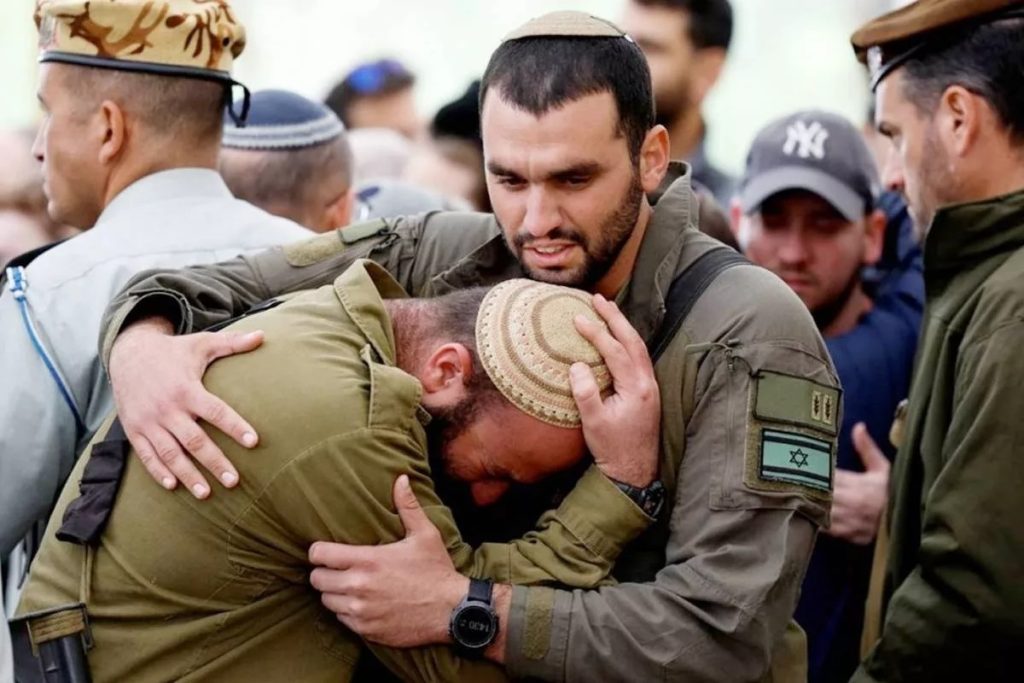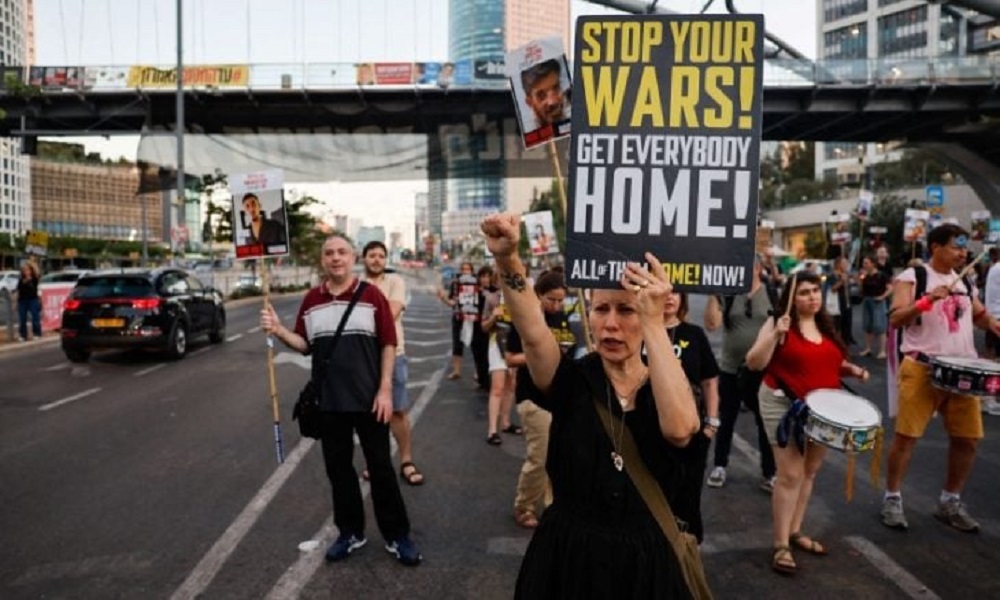Watan-A report by the Institute for National Security Studies (INSS) at Tel Aviv University finds that the Gaza war severely undermined Israeli moral resilience, whereas the war on Iran helped restore it, albeit temporarily.
According to the institute, “national resilience” refers to the ability of a society and its institutions to maintain stability during crises—whether natural or man-made. It includes public trust in state institutions and leadership, social solidarity, optimism and hope, and the ability to maintain a normal pace of life during wartime. These are markers of a society’s strength and flexibility in the face of prolonged emergencies.
National resilience, the report explains, is tested not only in withstanding disruption but also in recovering quickly and growing stronger afterward.
The Iran war, the report says, occurred amid accumulated challenges to Israel’s national resilience: the COVID-19 pandemic, ongoing domestic political instability from repeat elections, judicial overhaul protests, the October 7th Hamas attack, and multi-front wars.
Trust in the State: Gains and Gaps
Survey data comparing Israeli attitudes before and after the Iran war shows mixed signs of recovery in national morale.
Trust in the government rose from 21% in May 2025 to 38% after the Iran war.
Trust in Netanyahu rose from 31% to 42%.
Trust in the defense minister saw similar modest gains.
However, trust in the IDF remained consistently high—88% before and 94% after.
Trust in the army chief rose from 67% to 81%.

Social Solidarity & Media Influence
The feeling of communal solidarity—measured through volunteering and mutual aid—jumped from 30% in March to 56%, especially among right-wing Israelis. The report attributes this spike in part to media campaigns like “Together We Win.”
Yet, optimism and hope, key pillars of long-term resilience, remained low. Only around 40% of respondents believed conditions would improve in the near future.
Iran War: A Temporary Unifier
The Iran war served as a rare point of consensus: 88% of Israelis supported it, making it a psychological turning point in national resilience.
Still, it inflicted severe disruption to everyday life—an essential pillar of resilience. Iranian missiles caused significant damage:
Haifa oil refinery
Soroka Hospital in Be’er Sheva
Weizmann Institute in Rehovot
Widespread lockdowns, shelter orders, and halted daily routines
The 12-day war resulted in:
29 Israelis killed,
3,520 wounded,
13,000 to 19,000 displaced,
41,000 compensation requests filed.
While death tolls were lower than expected, mass destruction, fear, and interrupted civilian life shook the population deeply.
Mental Health Collapse
The war caused a 440% increase in requests for psychological support, and a sharp rise in the use of sedatives, sleeping pills, and antidepressants. A new survey found 33% of Israelis reporting a lack of personal security, up from 20% before the war.

Two Strategic Recommendations
Reinforce national morale by combating divisive political rhetoric and supporting collective identity.
End the Gaza war, similar to the ceasefire with Hezbollah, to allow displaced citizens to return home and retrieve hostages. Ongoing hostage captivity is described as a critical threat to morale.
Future Risks
Despite gains in solidarity during the Iran war, the INSS warns that returning to internal political polarization—over judicial reform, hostage deals, or Netanyahu’s corruption trial—may reverse these gains.
“No issues that originally fractured resilience have been resolved,” the report states. In fact, with early Knesset elections on the horizon, political division is likely to deepen.
